#massimo franciosa
Text

Le quattro giornate di Napoli (1962, Nanni Loy)
15/05/2024
#Le quattro giornate di Napoli#drama#1962#nanni loy#Aldo De Jaco#1956#Goffredo Lombardo#Academy Award for Best International Feature Film#Gold Medal of Military Valor#Gennaro Capuozzo#italy#germany#Manfred Klaiber#Four Days of Naples#1943#Nazi Germany#Allies of World War II#Vincenzo Stimolo#Scriptment#1960s#Vasco Patrolini#2017#Archivio Contemporaneo Alessandro Bonsanti#Florence#Pasquale Festa Campanile#Massimo Franciosa#screenplay#Carlo Bernari#naples#Salerno
2 notes
·
View notes
Photo

Renato Salvatori and Alain Delon in Rocco and His Brothers (Luchino Visconti, 1960)
Cast: Alain Delon, Renato Salvatori, Annie Girardot, Katina Paxinou, Spiros Focás, Claudia Cardinale, Max Cartier, Rocco Vidolazzi, Roger Hanin. Story and screenplay: Luchino Visconti, Suso Cecchi D'Amico, Vasco Pratolini, Pasquale Festa Campanile, Massimo Franciosa, Enrico Medioli, based on a novel by Giovanni Testori. Cinematography: Giuseppe Rotunno. Production design: Mario Garbuglia. Music: Nino Rota.
When Rocco (Alain Delon) cries out, "Sangue! Sangue!" on finding Nadia's (Annie Girardot) blood on his brother Simone's (Renato Salvatori) jacket, I almost expect to hear Puccini on the soundtrack instead of Nino Rota. It's one of those moments that cause Rocco and His Brothers (along with other films by Luchino Visconti) to be called "operatic." It's "realistic" but in a heightened way -- the word for it comes from the realm of opera: verismo. The moment is in the same key as the actual murder of Nadia, along with her earlier rape by Simone, and the numerous highly volatile scenes of the family life of the Parondis. It's what makes Rocco and His Brothers feel in many ways more contemporary than Michelangelo Antonioni's more cerebral L'Avventura, which was released in the same year. Movies have gone further in the direction of Rocco -- think of the films of Martin Scorsese and Francis Ford Coppola -- than they have in the direction of Antonioni's oeuvre. I have room in my canon for both the raw, melodramatic, and perhaps somewhat overacted Rocco and the enigmatically artful work of Antonioni, however.
24 notes
·
View notes
Text
TENEBRAE (1982) – Episode 234 – Decades Of Horror 1980s
“<Evil chuckle> When I realized Christiano Berti was the killer… and it didn’t take me long to realize that. <Evil chuckle> The rest, Mr Germani, was like writing a book. A Book!” Book ’em, Dan-o! Wait. Wrong media. Join your faithful Grue Crew – Chad Hunt, Bill Mulligan, Crystal Cleveland, and Jeff Mohr – as they take a cue from the 70s Grue Crew and take in some Giallo, Dario Argento-style with Tenebrae (1982).
Decades of Horror 1980s
Episode 234 – Tenebrae (1982)
Join the Crew on the Gruesome Magazine YouTube channel!
Subscribe today! And click the alert to get notified of new content!
https://youtube.com/gruesomemagazine
American author Peter Neal, who – while in Rome promoting his latest murder-mystery novel – becomes embroiled in the search for a serial killer who may have been inspired to kill by his novel.
Writer/Director: Dario Argento
Produced by: Claudio Argento (producer), Salvatore Argento (executive producer), Allan Scott (producer: English version)
Music by: Massimo Morante, Fabio Pignatelli, Claudio Simonetti (as Simonetti-Morante-Pigatelli)
Cinematography by: Luciano Tovolin (director of photography)
Film Editing by: Franco Fraticelli
First Assistant Director: Lamberto Bava
Second Assistant Director: Michele Soavi
Special Effects by: Giovanni Corridori (special effects)
Production Services – New York: William Lustig (uncredited)
Selected Cast:
Anthony Franciosa as Peter Neal
John Saxon as Bullmer
Daria Nicolodi as Anne
Giuliano Gemma as Detective Germani
Christian Borromeo as Gianni
Mirella D’Angelo as Tilde
Veronica Lario as Jane McKerrow
Ania Pieroni as Elsa Manni
Eva Robins as Girl on Beach
Carola Stagnaro as Detective Altieri
John Steiner as Christiano Berti
Lara Wendel as Maria Alboretto
Isabella Amadeo as Bullmer’s secretary
Mirella Banti as Marion
Lamberto Bava as Elevator Repairman #1 (uncredited)
It’s time for another 1980s feature from director Dario Argento with a return to the Giallo sub-genre. The film is Tenebrae – or Tenebre (original title) or Ténèbres (French) – and features Anthony Franciosa, John Saxon, and Daria Nicolodi. Argento was inspired by a series of incidents that saw an obsessed fan telephone the director to criticize him for the damaging psychological effects of his previous work. The telephone calls culminated in death threats towards Argento, who channeled the experience into the writing of Tenebrae with a double helix of a plot.
At the time of this writing, Tenebrae is available to stream from Wicked Horror TV, Shudder, Kanopy, and Plex. It is also available on Blu-Ray and 4K Ultra HD from Synapse Films.
This is the Decades of Horror Grue Crews’ xth encounter with Argento. Here are their other Argento episodes if you care to check them out.
THE BIRD WITH THE CRYSTAL PLUMAGE (1970) – Episode 190 – Decades of Horror 1970s
THE CAT O’ NINE TAILS (1971) – Episode 149 – Decades of Horror 1970s
DEEP RED (1975) — Episode 77 — Decades of Horror 1970s
SUSPIRIA (1977) — Episode 58 — Decades of Horror 1970s
PHENOMENA (1985) – Episode 168 – Decades of Horror 1980s
DARK GLASSES (2022, SHUDDER) – Gruesome Magazine #369
Every two weeks, Gruesome Magazine’s Decades of Horror 1980s podcast will cover another horror film from the 1980s. The next episode’s film, chosen by Crystal, will be George Romero’s Monkey Shines (1988). Oh yeah. We love monkeys with sharp utensils!
Please let them know how they’re doing! They want to hear from you – the coolest, grooviest fans – so leave them a message or comment on the Gruesome Magazine Youtube channel, on the Gruesome Magazine website, or email the Decades of Horror 1980s podcast hosts at [email protected].
Check out this episode!
0 notes
Video
youtube
Speciale “Premio Tatiana Pavlova” 2016 - Premiata Svetlana Zakharova
Tat'jana Pavlovna Pavlova, in Italia 10 . 12 . 1890 – Grottaferrata, 7 .11, 1975) è stata un'attrice, regista e docente russa naturalizzata italiana.
A seguito della rivoluzione abbandonò Mosca, stabilendosi dapprima a Parigi, e recitando a Odessa e Costantinopoli.
studiava italiano e dizione con Cesare Dondini[2] e Carlo Rosaspina. Nel 1923 fondò una compagnia teatrale a proprie spese, la quale debuttò al Teatro Valle di Roma in Sogno d'amore di Kossorotov
Riprese anche l'attività cinematografica, interpretando tra l'altro La signora di tutti.
Dopo la guerra la Pavlova diradò sempre più le sue apparizioni di attrice. Nel 1946 interpretò il ruolo della madre in Zoo di vetro di Tennessee Williams per la regia di Luchino Visconti. In seguito si dedicò soprattutto alla regia di opere liriche.
La sua ultima apparizione cinematografica fu nel ruolo di un'insegnante di recitazione in Io la conoscevo bene del 1965.
Scomparve nel 1975 all'età di 81 anni, nella casa di riposo Villa Letizia di Grottaferrata (nella quale si era ritirata da tempo) a causa di un attacco cardiaco
Per molti anni visse a Milano nella villa fattasi costruire in via Monterosa (oggi un hotel). Nel 1938 convolò a nozze con lo scrittore e gerarca fascista Nino D'Aroma: la notizia fece scalpore, poiché l'attrice aveva già 47 anni - un'età, all'epoca, considerata avanzata per una donna in procinto di andare all'altare - tanto che Giovanni Papini, quando seppe la Pavlova stava per sposarsi, esclamò: "E chi è l'antiquario che se l'è presa?"[4].
Filmografia parziale
La catena, regia di Alessandro Rosenfeld (1920)
Creature della notte, regia di Amleto Palermi (1934)
La signora di tutti, regia di Max Ophüls (1934)
Una lettera all'alba, regia di Giorgio Bianchi (1948)
Gli spadaccini della serenissima, regia di Gregory Ratoff (1949)
Ménage all'italiana, regia di Franco Indovina (1965)
Il morbidone, regia di Massimo Franciosa (1965)
Io la conoscevo bene, regia di Antonio Pietrangeli (1965)
Prosa televisiva RAI
Pane altrui di Ivan Turgenev, regia di Tatiana Pavlova, trasmessa il 22 giugno 1956.
I dialoghi delle carmelitane di Georges Bernanos, regia di Tatiana Pavlova, trasmessa il 2 novembre 1956.
L'ufficiale della guardia di Ferenc Molnár, regia di Tatiana Pavlova, trasmessa il 7 dicembre 1956.
Papà Eccellenza di Gerolamo Rovetta, regia di Tatiana Pavlova, trasmessa il 18 ottobre 1957.
Congedo di Renato Simoni, regia di Carlo Lodovici
Татьяна Павловна Павлова, Италия 10 . 12 . 1890-Гроттаферрата, 7 .11, 1975) была русской натурализованной актрисой, режиссером и преподавателем.
После революции он покинул Москву, поселившись сначала в Париже и выступая в Одессе и Константинополе.
он изучал итальянский язык и дикцию у Чезаре Дондини[2] и Карло Розаспина. В 1923 году он основал театральную труппу за свой счет, которая дебютировала в театре Валле в Риме в "мечте о любви" Коссоротова
Он также возобновил кинобизнес, сыграв, среди прочего, леди всех.
После войны Павлова все чаще становилась актрисой. В 1946 году она сыграла роль матери в стеклянный зоопарк Теннесси Уильямса для режиссера Лучино Висконти. Позже он посвятил себя главным образом постановке опер.
Ее последнее появление в кино было в роли преподавателя актерского мастерства в фильме "Я знал ее хорошо" 1965 года.
Она исчезла в 1975 году в возрасте 81 года в доме престарелых Villa Letizia в Гроттаферрате (в который она давно ушла на пенсию) из-за сердечного приступа
Много лет он жил в Милане на вилле фаттаси, построенной на Виа Монтероса (ныне отель). В 1938 году она обручилась с писателем и фашистским иерархом Нино Д'Арома: эта новость произвела фурор, поскольку актрисе было уже 47 лет - возраст, в то время считавшийся преклонным для женщины, собирающейся пойти к алтарю, - настолько, что Джованни Папини, узнав, что Павлова собирается выйти замуж, воскликнул: "А кто антиквар, который взял ее?"[4].
Частичная фильмография
Цепь, режиссер Алессандро Розенфельд (1920)
Существа ночи, режиссер Гамлет Палерми (1934)
Леди всех, режиссер Макс Офюльс (1934)
Письмо на рассвете, режиссер Джорджо Бьянки (1948)
Мечники Серениссимы, режиссер Грегори Ратофф (1949)
Ménage all'italiana, режиссер Франко гадает (1965)
Il morbidone, Режиссер Массимо Франсиоза (1965)
Я знал ее хорошо, режиссер Антонио Пьетранджели (1965)
Телевизионная проза RAI
"Чужой хлеб" Ивана Тургенева, режиссер Татьяна Павлова, эфир 22 июня 1956 года.
Диалоги кармелиток Жоржа Бернаноса, режиссер Татьяна Павлова, эфир 2 ноября 1956 года.
Офицер гвардии Ференца Мольнара, режиссер Татьяна Павлова, передана 7 декабря 1956 года.
Папа превосходство Джероламо Роветта, режиссер Татьяна Павлова, эфир 18 октября 1957 года.
Отпуск Ренато Симони, режиссер Карло Лодовичи
#DONALDTRUMP
#TRUMP
#BOLSONARO
#GHEZZI
#DORIGHEZZI
#STRISCIALANOTIZIA
#FRANCESCO
#RUTELLI
#PROPAGANDALIVE
#ELUANA
#ENGLARO
#ELUANAENGLARO
#CRISTIANO
#DEANDRE
#CRISTIANODEANDRE
#twitter
#facebook
#skyrock
#linkedin
#instagram
#okru
#tiktok
ODIO I GIORNALISTI
SONO SENZA COSCIENZA
INCOMPETENTI
COME GLI PSICHIATRI
0 notes
Photo
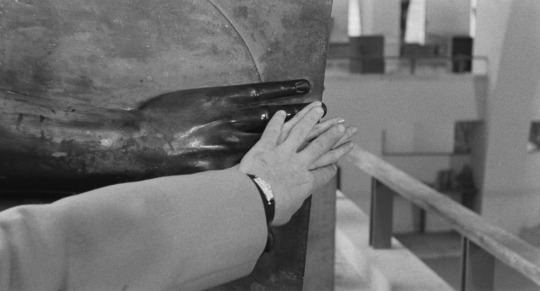
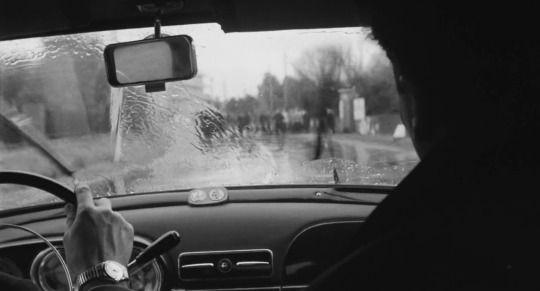
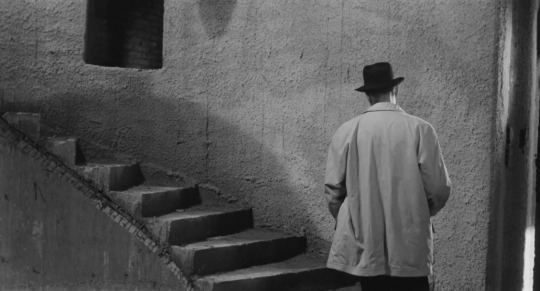
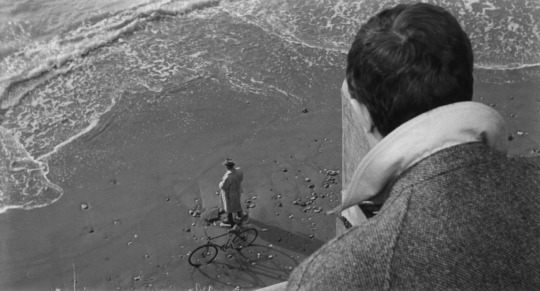
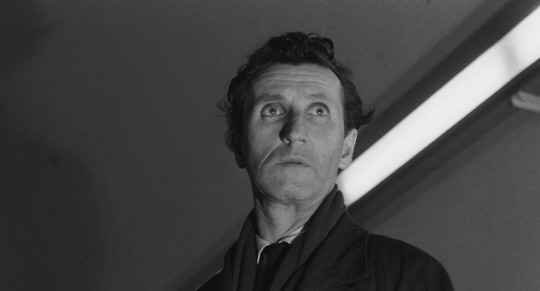
L'assassino, 1961. Dir. By Elio Petri.
#l'assassino#marcello mastroianni#micheline presle#elio petri#cristina gaioni#massimo franciosa#60s#giallo
28 notes
·
View notes
Text

Movie #8 of 2022: The Leopard
Tancredi Falconeri: “If we want things to stay as they are, things will have to change.“
#the leopard#italian#luchino visconti#giuseppe tomasi di lampedusa#suso cecchi d'amico#pasquale festa campanile#enrico medioli#massimo franciosa#nino rota#giuseppe rotunno#mario serandrei#drama#history#latin#french#german#35mm#super technirama 70#cinemascope#08#1963
7 notes
·
View notes
Text
Il Gattopardo – Leopar

Il Gattopardo – Leopar
Şişirme klasiklerden biri daha. Şüphesiz birçok sahnesi olağanüstü, isyancıların askerlerle savaşmaları en inandırıcı sahnelerdi. Kostümler, mekan seçimi, hatta yer yer diyaloglar dahi övülmeye değer. Uzun mu uzun balo sahnesi ise bıktırdı. Bir bütün olarak düşünüldüğünde ise film can sıkıcı bir tarihi anın yansıtılması. Çok başarılar bulanlar var, benim gibi yetersiz…
View On WordPress
#Alain Delon#Brook Fuller#Burt Lancaster#Carlo Valenzano#Claudia Cardinale#Der Leopard#Enrico Medioli#Evelyn Stewart#Film eleştirileri#Giuliano Gemma#Giuseppe Tomasi di Lampedusa#Il Gattopardo 1963#Il Gattopardo – Leopar#Luchino Visconti#Lucilla Morlacchi#Massimo Franciosa#Ottavia Piccolo#Paolo Stoppa#Pasquale Festa Campanile#Pierre Clémenti#Rina Morelli#Romolo Valli#Süleyman Deveci#Suso Cecchi D&039;Amico#Terence Hill
2 notes
·
View notes
Photo

Claudia Cardinale as Bianca in La Viaccia (1961, Mauro Bolognini)
#claudia cardinale#la viaccia#the lovemakers#le mauvais chemin#mauro bolognini#mario pratesi#vasco pratolini#pasquale festa campanile#massimo franciosa#cinema italiano#corset#60s#diva#film#italian cinema#italian actress
34 notes
·
View notes
Text
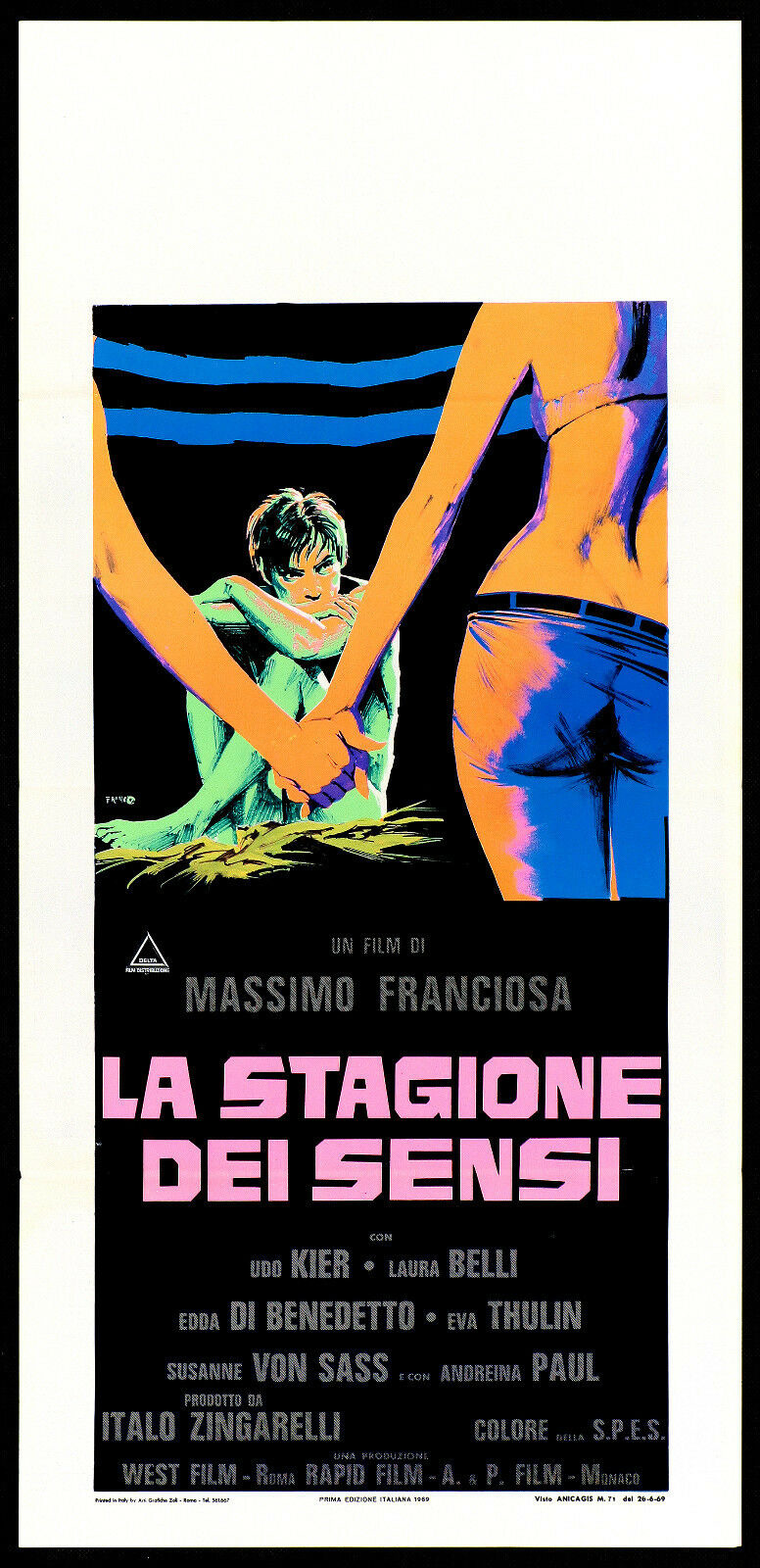



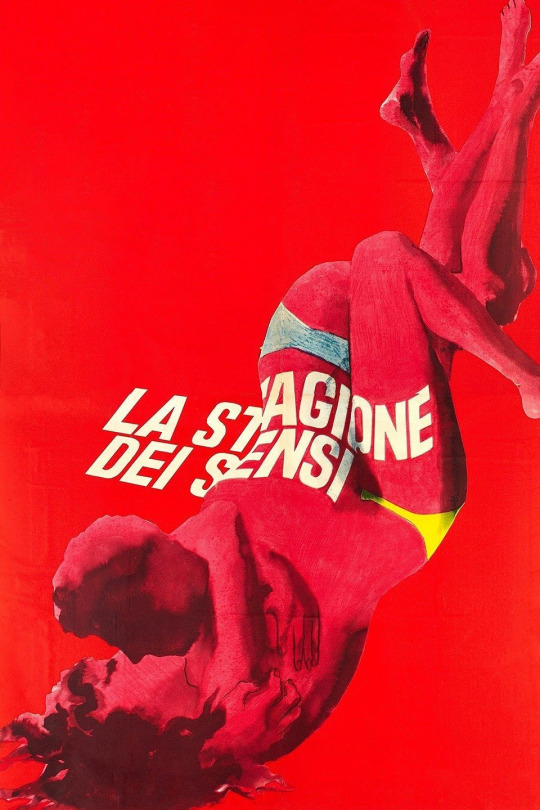

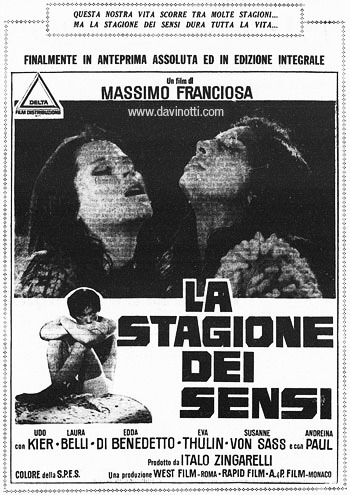



1969 (in the script appears Dario Argento)
“La stagione dei sensi”
Also Known As (AKA)
Italy La stagione dei sensi
USA Season of the Senses
International Season of the Senses
Direct by Massimo Franciosa
Music by Ennio Morricone
screenplay by Dario Argento & Barbara Alberti
Story by Barbara Alberti
Italy 22 October 1969
technical specifications
Runtime 1 hr 34 min (94 min)
1 hr 26 min (86 min) (Italy)
Filming Locations
Castello di Altafiumara
Villa San Giovanni
Reggio Calabria
Calabria, Italy #lastagionedeisensi #seasonofsenses #massimofranciosa #ewathulin #udokier #darioargento #barbaraalberti #giallofever #italianhorror #italiangiallo #gialloallitaliana #horrormovies #giallomovies #gialloitaliano #giallofilm #giallodrama #italianhorrorfilms #italianhorrormovies #spaghettigiallo #filmhorror #spaghettihorror #giallohorror #giallo #shorror #horror #gialli #filmhorreur #italiancinema #italiancrimefilm #italiancrimemovies
#la stagione dei sensi#the season of senses#massimo franciosa#ewa thulin#udo kier#giallo fever#giallofever#giallo#gialli#italian giallo#italian cult#cinema cult#cult#giallo films#giallo all’italiana
1 note
·
View note
Photo

The Leopard (1963). The Prince of Salina, a noble aristocrat of impeccable integrity, tries to preserve his family and class amid the tumultuous social upheavals of 1860's Sicily.
This is an interesting film - it was famously panned upon it’s release, but history has been pretty kind to it. And deservedly so to be honest - there’s a lot to like in it. Sure, it would’ve seemed dated for the time, and way too long even for now, but there are parts of it that are genuinely transcendent, and the visually language tells a rare but compelling story. It’s a solid film, and not deserving of the horrid reception it got in the 60s. 7.5/10.
#the leopard#1963#Oscars 36#Nom: Costume#Luchino Visconti#Giuseppe Tomasi di Lampedusa#Suso Cecchi D'Amico#Pasquale Festa Campanile#Enrico Medioli#Massimo Franciosa#burt lancaster#Claudia Cardinale#Alain Delon#italy#italian#1800s#romance#war#uprising#revolution#7.5/10
10 notes
·
View notes
Link
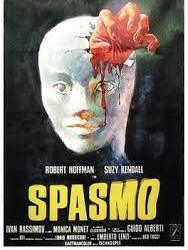
#spasmo#umberto lenzi#pino boller#massimo franciosa#luisa montagnana#robert hoffmann#suzy kendall#ivan rassimov#giallo#mystery#thriller#italy#adolfo lastretti#franco silva#mario erpichini#maria pia conte#ennio morricone#horror#horror film#horror films#horror movie#horror movies#horror fan#horror fans#horror review#horror reviews#horror reviewer#film review#film reviews#film reviewer
1 note
·
View note
Photo

The impulse had become irresistible. There was only one answer to the fury that tortured him. And so he committed his first act of murder. He had broken the most deep-rooted taboo, and found not guilt, not anxiety or fear, but freedom. Any humiliation which stood in his way could be swept aside by the simple act of annihilation: Murder.
Tenebrae (Tenebre), Dario Argento (1982)
#Dario Argento#Anthony Franciosa#Christian Borromeo#Mirella D'Angelo#Veronica Lario#Ania Pieroni#Eva Robins#Carola Stagnaro#John Steiner#Lara Wendel#John Saxon#Daria Nicolodi#Giuliano Gemma#Luciano Tovoli#Massimo Morante#Fabio Pignatelli#Claudio Simonetti#Franco Fraticelli#1982
49 notes
·
View notes
Photo




La stagione dei sensi, 1969, Dir. Massimo Franciosa
#I love the cardigan + no shirt look#udo kier#la stagioni dei sensi#60s movies#pretty#italian movies#obscure movies#retro#gifs#mine#edits
10 notes
·
View notes
Photo




L'assassino, 1961. Dir. By Elio Petri.
#l'assassino#marcello mastroianni#micheline presle#elio petri#cristina gaioni#massimo franciosa#60s#giallo
27 notes
·
View notes
Text
§ 2.379. El Gatopardo (Luchino Visconti, 1963)

Un tiempo de nace y otro que muere... una revolución, una tensión por lo que va a venir, un problema diletante, una realidad que atropella a quiene no se suben al tren de la modernidad. Una sociedad algo más que clasista o conservadora. Una sociedad radicalmente distinta.El largometraje muestra la vida de Don Fabrizio, Príncipe de Salina y de su familia, que se ve alterada al ser Sicilia invadida por las tropas de Garibaldi en la época del Risorgimento: en la unificación de Italia a mitad del Siglo XIX.La revuelta provoca que la familia se refugié en la casa de campo que la familia tiene en Donnafugatta. El sobrino favorito del príncipe es un simpatizante de los rebeldes, pero más por modernidad y juventud que por auténtico convencimiento."Qué hermoso país sería este si no hubiera tantos Jesuitas" le dice el aristócrata al cura de pueblo..."Si queremos que todo quede como está, es preciso que cambie todo", frase mítica que le dice el sobrino al tío al comienzo de la película, cuando decide abandonar la familia para irse a las montañas con los rebeldes."Somos seres humanos en plena transformación" le dice el principe al cura, quizá como apreciación Un reparto de escándalo con tres actores absolutamente míticos: Burt Lancaster como el príncipe que aprecia la realidad que viene, que es capaz de comprenderla desde un punto de vista intelectual, que no comparte porque sería renunciar a sus privilegios de clase pero que sí es capaz de valorar y entender: sabe que es inevitable.La aparición de Claudia Cardinale en la mansión, al minuto 58 de película, lo cambia todo, es otra cinta. Guapa, enigmática, sensual, delicada... impresionante.Alain Delon como sobrino del príncipe y simpatizante de la revolución en un papel muy celebrado y recordado.Están acompañados de Paolo Stoppa, Rina Morelli, Romolo Valli, Terence Hill como soldado de Garibaldi, Pierre Clémenti, Lucilla Morlacchi, Giuliano Gemma, Ida Galli, Ottavia Piccolo, y Serge Reggiani.El guion es de Suso Cecchi d'Amico, Pasquale Festa Campanile, Massimo Franciosa, Enrico Medioli, y Luchino Visconti, sobre una conocidísima novela de Giuseppe Tomasi di Lampedusa, la única que escribió, de claro trazo autobiográfico.Me ha gustado mucho la música de Nino Rota, todo un clásico. La fotografía es de Giuseppe Rotunno, limpia y colorista, en tonos tierra y pastel: ocres, trises, negros... un magnífico tratamiento del polvo, que por momentos parece en suspensión.El director es un grande verdad: Visconti. Todo lo que he visto de él me ha parecido magnífico, en mayor o menor medida. Me podrá haber gustado algo más o algo menos, pero todas las películas me han parecido excelentes. Todo está muy cuidado, la ropa, el atrezzo, la música, la ambientación, los escenarios, los decorados, loa animales -perros, caballos-, las labores de labranza, el cielo de Palermo. Hay planos que son una auténtica composición pictórica, particularmente en del picnic en el campo, con los personajes agrupados alrededor de un mantel -sábana más bien- enorme y de color blanco posado en el suelo y sobre el que se han depositado las viandas y los vinos, los platos y los enseres.
1 note
·
View note
Text
SERENA GRANDI E LAURA ANTONELLI IN RIMINI RIMINI
SERENA GRANDI E LAURA ANTONELLI IN RIMINI RIMINI
Rimini Rimini (1987) di Sergio Corbucci è una commedia di ambientazione vacanziera che collega tra loro diversi episodi facendo riferimento alla nota località balneare romagnola.
Il film è scritto e sceneggiato da ben otto autori: Sergio e Bruno Corbucci, Mario Amendola, Massimo Franciosa, Maurizio Micheli, Marco Risi, Gianni Romoli e Bernardino Zapponi.
Il titolo ricorda il romanzo di Pier…
View On WordPress
0 notes